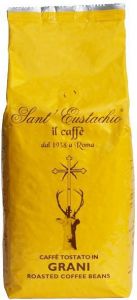
2-4 Workdays Article No. 1054
Aroma(s) : Chocolaty, Nutty
Article No. 1054

2-4 Workdays Article No. 1055
Aroma(s) : Nutty, Fruity
Article No. 1055

2-4 Workdays Article No. 1056
Aroma(s) : Floral, Fruity
Article No. 1056

2-4 Workdays Article No. 1118
Aroma(s) : Chocolaty, Fruity
Article No. 1118

2-4 Workdays Article No. 1118b
Aroma(s) : Chocolaty, Fruity
Article No. 1118b

2-4 Workdays Article No. 1147
Aroma(s) : Chocolaty, Nutty
Article No. 1147

2-4 Workdays Article No. 1148
Aroma(s) : Chocolaty, Nutty
Article No. 1148

2-4 Workdays Article No. 1146
Aroma(s) : Chocolaty, Floral
Article No. 1146

2-4 Workdays Article No. 1151
Aroma(s) : Chocolaty, Nutty
Article No. 1151

2-4 Workdays Article No. 1150
Aroma(s) : Chocolaty, Nutty
Article No. 1150

2-4 Workdays Article No. 1643
Aroma(s) : Chocolaty, Nutty
Article No. 1643

2-4 Workdays Article No. 1252
Aroma(s) : Chocolaty, Fruity
Article No. 1252

2-4 Workdays Article No. 1693
Aroma(s) : Chocolaty
Article No. 1693

2-4 Workdays Article No. 1115a
Aroma(s) : Nutty
Article No. 1115a

2-4 Workdays Article No. 1286
Aroma(s) : Chocolaty, Floral
Article No. 1286

2-4 Workdays Article No. 1287
Aroma(s) : Chocolaty, Floral
Article No. 1287

2-4 Workdays Article No. 1646
Aroma(s) : Chocolaty, Floral
Article No. 1646

2-4 Workdays Article No. 1385
Aroma(s) : Chocolaty, Nutty
Article No. 1385

2-4 Workdays Article No. 1387
Aroma(s) : Chocolaty
Article No. 1387

2-4 Workdays Article No. 1392
Aroma(s) : Floral, Fruity
Article No. 1392

2-4 Workdays Article No. 1691
Aroma(s) : Chocolaty, Fruity
Article No. 1691

2-4 Workdays Article No. 1477
Aroma(s) : Chocolaty, Floral
Article No. 1477

2-4 Workdays Article No. 1569
Aroma(s) : Nutty, Malty
Article No. 1569

2-4 Workdays Article No. 1578
Aroma(s) : Floral, Fruity
Article No. 1578

2-4 Workdays Article No. 1863
Aroma(s) : Chocolaty, Malty
Article No. 1863

2-4 Workdays Article No. 1579
Aroma(s) : Floral, Fruity
Article No. 1579

2-4 Workdays Article No. 1580
Aroma(s) : Floral, Fruity
Article No. 1580

2-4 Workdays Article No. 1581
Aroma(s) : Floral, Fruity
Article No. 1581

2-4 Workdays Article No. 1582
Aroma(s) : Floral, Fruity
Article No. 1582

2-4 Workdays Article No. 1594
Aroma(s) : Chocolaty, Fruity
Article No. 1594

2-4 Workdays Article No. 1719
Aroma(s) : Malty, Floral
Article No. 1719

2-4 Workdays Article No. 1717
Aroma(s) : Chocolaty, Nutty
Article No. 1717

2-4 Workdays Article No. 1718
Aroma(s) : Chocolaty, Nutty
Article No. 1718

2-4 Workdays Article No. 1735
Aroma(s) : Chocolaty, Nutty
Article No. 1735

2-4 Workdays Article No. 10075
Aroma(s) : Chocolaty, Nutty
Article No. 10075

2-4 Workdays Article No. 1836
Aroma(s) : Chocolaty, Nutty
Article No. 1836
Italian coffee: A pleasure like in Bella Italia
Introduction
Coffee is a popular beverage worldwide and is prepared in a variety of ways. One of the most famous ways of preparing it is Italian coffee, also known as espresso. Italians are known for their love of coffee and the high quality of their coffee beans. In this article, we will take an in-depth look at Italian coffee, its history, its importance and how to make the perfect Italian coffee at home.
The history of Italian coffee
Coffee has a long history, dating back to the 15th century. The first coffee houses were opened in Italy and quickly became popular meeting places for people. Italian coffee was first invented in the 1880s when Luigi Bezzera invented a coffee machine that allowed coffee to be extracted in less time and at higher pressure. This led to the invention of espresso and the machine quickly became a symbol of Italian coffee.
The importance of Italian coffee in Italy
In Italy, coffee is an important part of the culture. There are numerous cafes and coffee houses in every city, which are an important meeting place for people. Italian coffee is usually drunk after meals and is part of the daily rhythm of Italian life. Making and enjoying coffee is a ritual in Italy and is often shared with friends and family.
The different types of Italian coffee
There are several types of Italian coffee, prepared differently depending on the region and personal taste. Here are the most popular ones:
1. Espresso
Espresso is the most famous Italian coffee. It is made from finely ground coffee beans and hot water and has a strong, concentrated flavor.
2: Caffè Americano
Caffè Americano is an espresso that is extended with hot water. This makes it milder and has a greater amount of caffeine than espresso.
3. cappuccino
Cappuccino is a combination of espresso and milk. It is usually drunk at breakfast or in the morning and has a frothy layer of milk.
4. latte macchiato
Latte Macchiato is a mixture of hot milk and espresso. It is usually served in a tall glass and has a layered look.
Tips for making the perfect Italian coffee at home.
Making Italian coffee is an art and requires some practice to achieve the perfect taste. Here are some tips that can help you make the perfect Italian coffee at home:
1. Use fresh coffee beans
Use fresh coffee beans and grind them just before brewing. Also, use only high quality coffee beans to get the best taste.
2. Use the right amount of coffee
Use about 7 grams of coffee beans for one cup of Italian coffee. Also use the right amount of water and make sure it is hot enough.
3. Choose the right coffee machine
Choosing the right coffee maker is important to make the perfect Italian coffee. An espresso machine is ideal, but there are other coffee makers that can produce good results.
4. Pay attention to the right extraction time
The right extraction time is important to achieve the perfect Italian coffee. The extraction time should be between 25 and 30 seconds to achieve the best taste.
5. Pay attention to the crema
The crema is the foam layer on the espresso and an important component of Italian coffee. Make sure the crema is thick and creamy for the best taste.
Frequently asked questions
1. Is Italian coffee stronger than regular coffee?
Yes, Italian coffee, especially espresso, is stronger than regular coffee due to its high concentration.
3. Can I add milk to my Italian coffee?
Yes, milk can be added to Italian coffee such as cappuccino or latte macchiato.
4. Where do the best coffee beans for Italian coffee come from?
The best coffee beans for Italian coffee come from South America and Africa.
Conclusion
Italian coffee is a treat just like in Bella Italia. Italians are known for their love of coffee and the high quality of their coffee beans. Making Italian coffee is an art and requires some practice to achieve the perfect taste. However, with the right tips and tricks, you can make the perfect Italian coffee at home and enjoy the taste of Italy.
Further reading
If you want to learn more about Italian coffee, we recommend the following sources:
"Espresso! The best recipes and techniques" by Suzanne Schilling
"Coffee in Italy: A brief cultural history" by Andreas Scholl
"Italian coffee culture: espresso, cappuccino and co." by Jonas Cramby.
We hope you enjoyed this article about Italian coffee and that you will be able to enjoy the perfect Italian coffee at home. Buon caffè!

